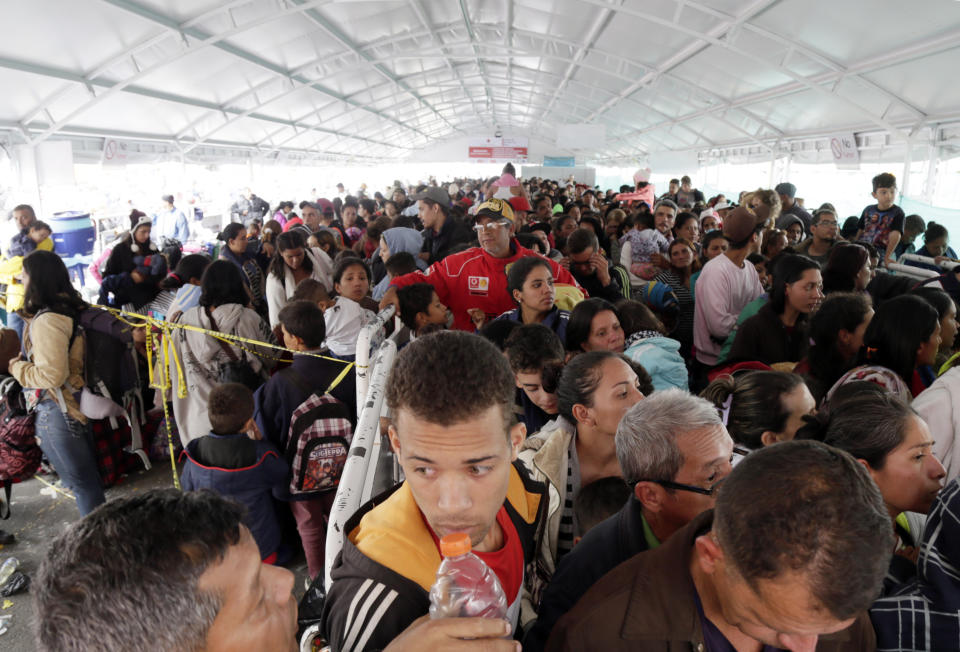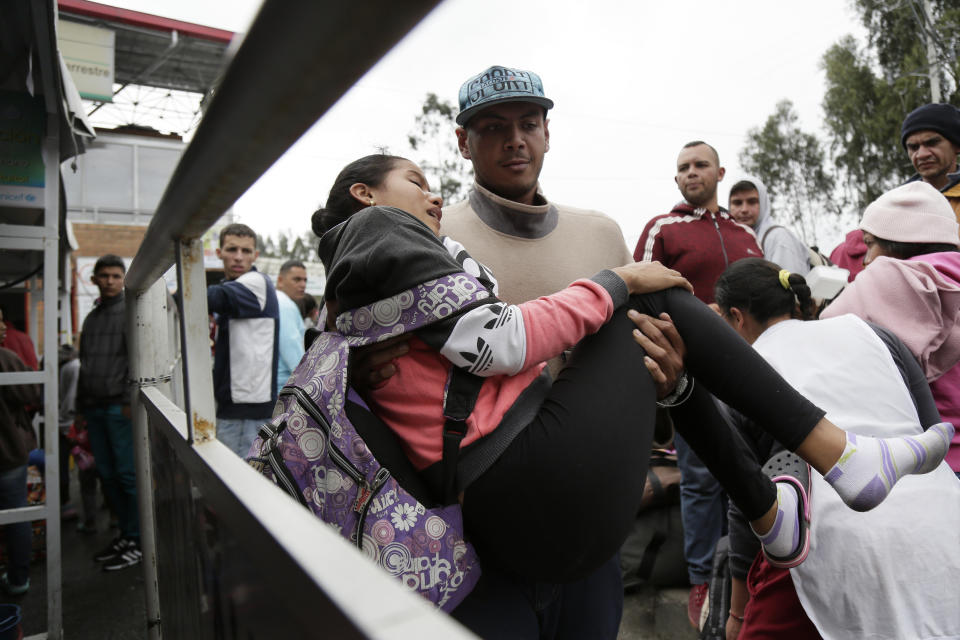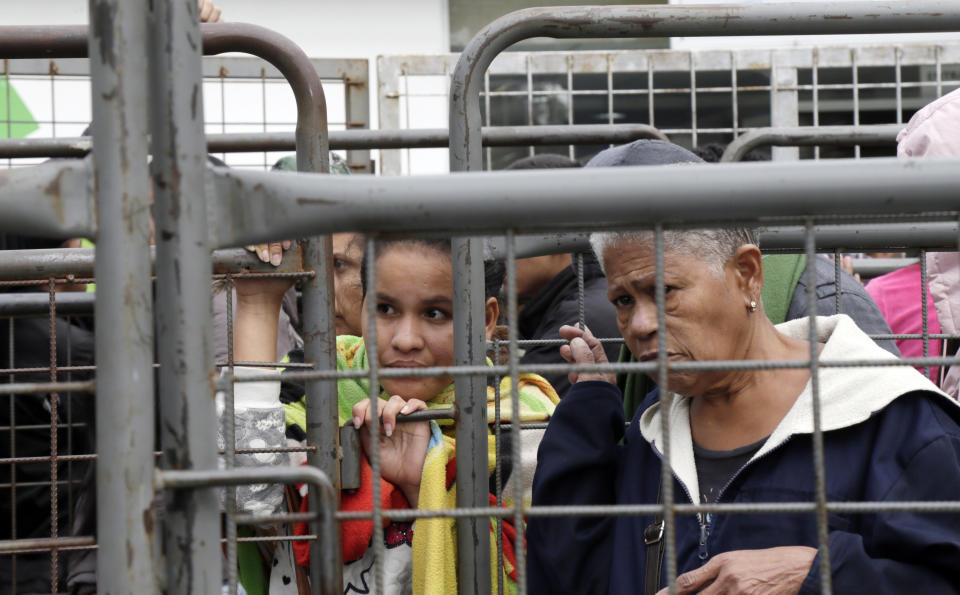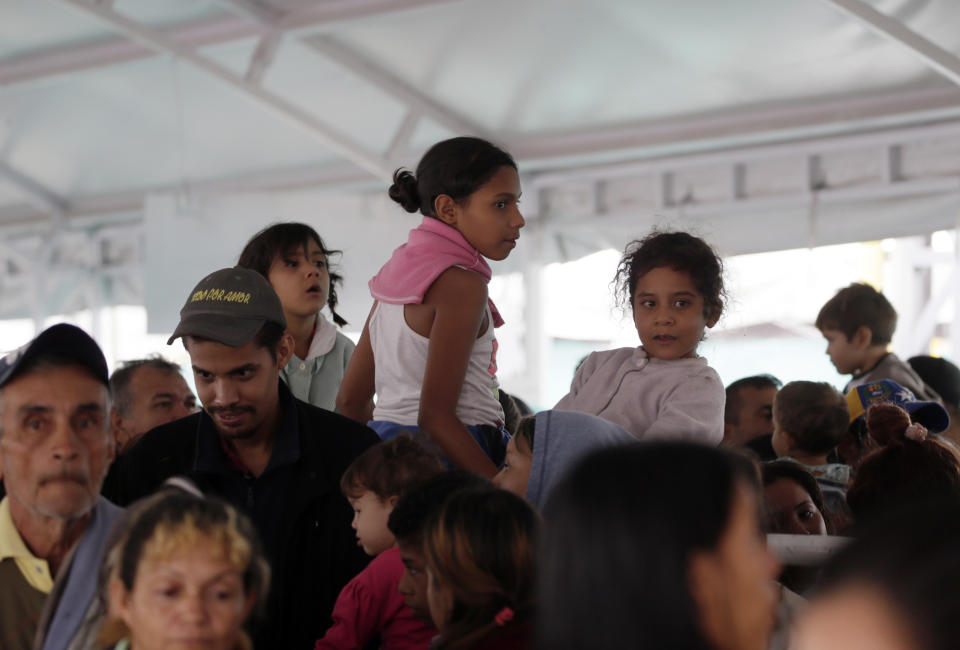Venezuelans flock to Peru before new entry requirements
LIMA, Peru (AP) — Venezuelan citizens were rushing to enter Peru Thursday less than two days before it imposes new entry requirements on migrants fleeing the crisis-wracked South American nation.
Long lines of people carrying blankets and suitcases had formed at a border post in northern Peru, while humanitarian groups set up activities for their children under a white tent.
Gen. Raul Alfaro, the police chief for the Tumbes region, said 4,000 Venezuelans entered Peru's northern border on Wednesday, doubling the normal rate of daily entries.
"It's likely that the number of migrants will increase" in the coming hours, Alfaro said in a television interview from the Tumbes border crossing. "The national police is providing protection and security so these people can enter the country in an organized fashion."
Starting Saturday, Peru will demand passports and visas from Venezuelan migrants, who had previously been allowed to enter the country by presenting their national ID cards.
The new requirements are forcing thousands of impoverished Venezuelans who have no passports to make a desperate dash for Peru's northern border, which is more than 1,300 miles (2,090 kilometers) away from their home country.
"Getting a passport in my country has become almost impossible" said Marianni Luzardo, a Venezuelan migrant who was in the Ecuadorean city of Tulcan on Thursday, and still had to travel 500 miles (800 kilometers) to make it to Peru. Luzardo traveled with her two children and her elderly mother, and said it took her sixteen hours to cross the border between Colombia and Ecuador due to the large numbers of Venezuelans heading south.
"There is no way to continue living in Venezuela, there is no future there" said Luzardo, whose 10-year-old son has autism. She is hoping to join her husband in Peru.
With its relatively stable economy and flexible immigration laws, Peru has become one of the main destinations for Venezuelans seeking to escape hyperinflation, medical shortages and political repression at home, and thousands have been entering the country on a daily basis over the past two years.
According to the United Nations, Peru is currently home to 770,000 Venezuelan migrants of which 280,000 are seeking refugee status.
While the United Nations has urged Peru and other countries in South America to facilitate the entry of Venezuelan migrants into their territory and give them protected status, Peru's government said it has imposed visa requirements in an effort to make immigration safer and more organized.
Some Peruvians blame the new arrivals for a spike in local crime rates, and the government has responded by deporting 140 Venezuelans with criminal records over the past three months.
But Peru's Catholic Bishops Conference and Amnesty International have spoken out against the new visa requirements.
"These kinds of barriers have not worked in any country" Amnesty International's Director for Peru, Marina Navarro said on Wednesday. "When people fear for their lives, they will flee their country anyways."





